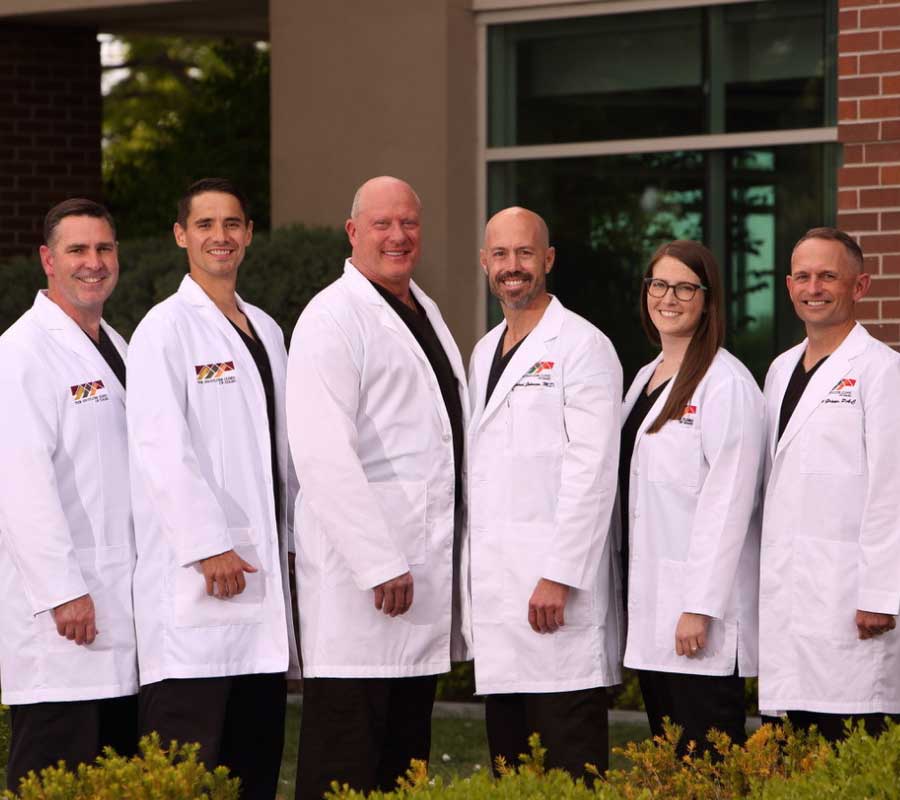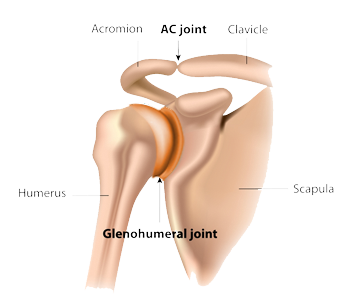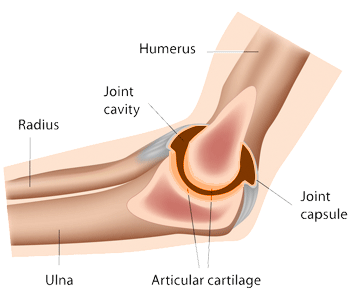Arthroscopic Capsular Release Surgeons

Are you experiencing shoulder stiffness? Shoulder stiffness can develop after soft tissue injuries or following fractures of the shoulder. The arthroscopic capsular release surgeons at the Shoulder Clinic of Idaho provide diagnosis and both surgical and nonsurgical treatment options for patients in the Boise area who are suffering from shoulder stiffness. Contact the Shoulder Clinic of Idaho team today!
What causes shoulder stiffness?
The shoulder joint is made of several joints that combine with tendons and muscles to allow a wide range of motion of the arm. Mobility has its price however, as it makes the shoulder more susceptible to injury than other joints which can result in shoulder pain and shoulder stiffness. Severe pain and shoulder stiffness can cause dysfunction of the shoulder. Shoulder stiffness can develop after soft tissue injuries or following fractures of the shoulder. The orthopedic specialists at The Shoulder Clinic of Idaho, treating patients in Boise, Meridian, Nampa, and the surrounding communities of the Treasure Valley, are experts at diagnosing and treating shoulder stiffness and shoulder pain.
Why is my shoulder stiff?
There are several reasons why you may develop shoulder stiffness. Here are a few shoulder conditions that cause shoulder stiffness, which can be diagnosed and treated by the orthopedic surgeons at The Shoulder Clinic of Idaho:
- SLAP Tear – A tear to a piece of cartilage that lines the shoulder socket. SLAP tears can cause deep shoulder pain and reduced range of motion, especially with internal rotation of the shoulder joint. This condition is called G.I.R.D which is an acronym that represents glenohumeral internal rotational deficit.
- Rotator cuff tears – Can occur from injury or overuse, resulting in arm weakness and shoulder stiffness. The posterior capsule of the shoulder is commonly stiff in patients with rotator cuff tears and rotator cuff tendonitis with limits shoulder internal rotation and causes pain when reaching across the front of the body
- Arthritis – Cartilage degeneration in the shoulder joint and bone spurs from shoulder arthritis can cause inflammation in the shoulder joint which may also lead to significant shoulder stiffness and pain. Range of motion movements can cause roughness (shoulder crepitus) and pain.
- Subacromial bursitis – Swelling and inflammation of the subacromial bursa can cause shoulder stiffness and pain with overhead activities. Subacromial bursitis occurs when the bursa (a sack of lubricating fluid in the shoulder) becomes inflamed.
- Frozen Shoulder – Also known as adhesive capsulitis, is a shoulder condition marked by profound loss of shoulder motion, shoulder pain and marked shoulder stiffness which can gradually improve over time, but may take one to two years to fully resolve.
What is Adhesive Capsulitis?
Adhesive Capsulitis is a specific form of shoulder stiffness that is also known as frozen shoulder. It is a shoulder joint condition that causes stiffness, pain, discomfort and diffuse limited movement. It commonly occurs in patients between the ages of 40 and 60 years of age and can be associated with other conditions such as diabetes, thyroid disorders, and cervical spine conditions. Frozen shoulder occurs when the connective tissue and capsule surrounding the joint becomes inflamed and subsequently tightens and thickens. This shoulder inflammation creates a thickened and adhesive capsule which surrounds the shoulder joint and limits shoulder motion in a diffuse fashion which can be very debilitating. Patients will describe a constant shoulder ache that sharply worsens as the shoulder is moved and reaches the limit of the tightened and inflamed shoulder capsule.
Are you a candidate for an arthroscopic capsular release?
There are two ways to initiate a consultation with the Shoulder Clinic of Idaho:
You can call our office and schedule an appointment with one our shoulder specialists.
You can schedule an office consultation with a member of our shoulder team.
What is Arthroscopic Capsular release?
Ligaments, tendons and bones make up the shoulder joint and are encased in a capsule of soft tissue. Prior shoulder trauma, adhesive capsulitis and other shoulder conditions can cause inflammation within the shoulder capsule which leads to adhesions and thickening. This thickened and inflamed “scar-like” tissue creates loss of shoulder motion restricting arm movement. Arthroscopic Capsular release is minimally invasive surgery, done to specifically remove shoulder inflammation and to release the tight shoulder capsule. Done through small incisions in the shoulder, the orthopedic specialists at The Shoulder Clinic of Idaho use a small camera and small instruments to perform this specialized surgery called arthroscopic capsular release. Arthroscopic shoulder surgery is minimally invasive surgery which allows for a quicker healing time with less pain, a lower risk of infection, as well as a lower risk of other complications.
What is manipulation under anesthesia?
Patients in Boise, Meridian, Nampa, and the surrounding communities of the Treasure Valley may wish to undergo a treatment for frozen shoulder called manipulation under anesthesia (MUA). During this specialized surgery, the shoulder is carefully moved through a specific range of motion, causing the shoulder capsule and inflamed scar-like tissue to stretch. This releases the tight capsule, increases the range of motion of the shoulder joint and improves shoulder pain. The procedure does not involve incisions, instead it involves freeing the shoulder by manipulation.
What happens after arthroscopic capsular release?
Following capsular release surgery and manipulation under anesthesia, immediate rehabilitation is necessary to prevent shoulder stiffness and the recurrence of frozen shoulder. The shoulder specialists at The Shoulder Clinic of Idaho will oversee physical therapy, provide you with specific exercises and monitor your recovery to optimize your return of shoulder comfort and function. The goal is to reduce shoulder pain and to restore full range of motion of the shoulder joint. Full range of motion may be achieved in 6 weeks following an arthroscopic capsular release and manipulation under anesthesia depending on the severity of the original condition.
For more information on arthroscopic capsular release for stiff shoulder, or for frozen shoulder, please contact the office of The Shoulder Clinic of Idaho, serving Boise, Meridian, Nampa, and the surrounding communities of the Treasure Valley.



